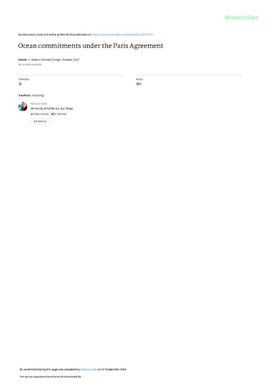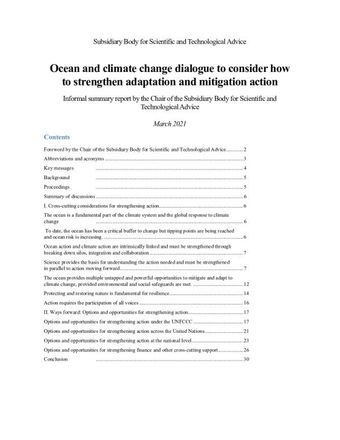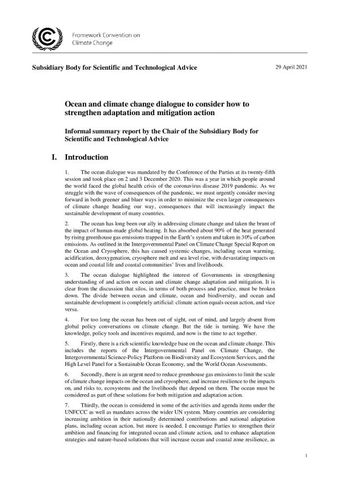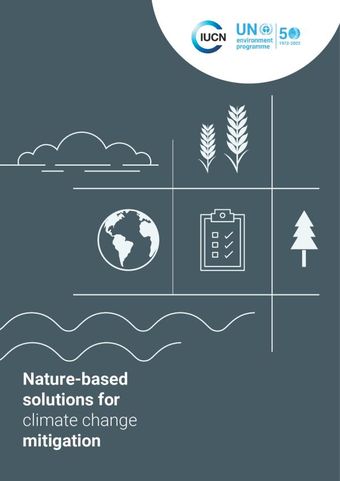Ocean commitments under the Paris Agreement.
- Description:
- Under the Paris Agreement nations made pledges known as nationally determined contributions (NDCs), which indicate how national governments are evaluating climate risks and policy opportunities. We find that NDCs reveal important systematic patterns reflecting national interests and capabilities. Because the ocean plays critical roles in climate mitigation and adaptation, we created a quantitative marine focus factor (MFF) to evaluate how governments address marine issues. In contrast to the past, when oceans received minimal attention in climate negotiations, 70% of 161 NDCs we analysed include marine issues. The percentage of the population living in low-lying areasvulnerable to rising seaspositively influences the MFF, but negotiating group (Annex 1 or small island developing states) is equally important, suggesting political motivations are crucial to NDC development. The analysis reveals gaps between scientific and government attention, including on ocean deoxygenation, which is barely mentioned. Governments display a keen interest in expanding marine research on climate priorities.
- Display date:
- 2017
- Collections:
- Secretariat of the Pacific Regional Environment Programme (SPREP)
- Publisher:
- San Diego, USA
- Content partner:
- Secretariat of the Pacific Regional Environment Programme (SPREP)
- Availability:
- Not specified
-
Copyright status: All rights reservedFind out more about what you are able to do with this itemThis item is all rights reserved, with means you'll have to get permission from Secretariat of the Pacific Regional Environment Programme (SPREP) before using it. For more information, please see our use and reuse page.What can I do with this item?Non-infringing useNZ copyright law does not prevent every use of a copyright work, and this item may be hosted by an international institute or organisation. You should consider what you can and cannot do with a copyright work.No sharingYou may not copy and/or share this item with others without further permission. This includes posting it on your blog, using it in a presentation, or any other public use.No modifyingYou are not allowed to adapt or remix this item into any other works.No commercial useYou may not use this item commercially.
Related items
Welcome and warm Pasifik greetings
The information on this site has been gathered from our content partners.
The names, terms, and labels that we present on the site may contain images or voices of deceased persons and may also reflect the bias, norms, and perspective of the period of time in which they were created. We accept that these may not be appropriate today.
If you have any concerns or questions about an item, please contact us.



